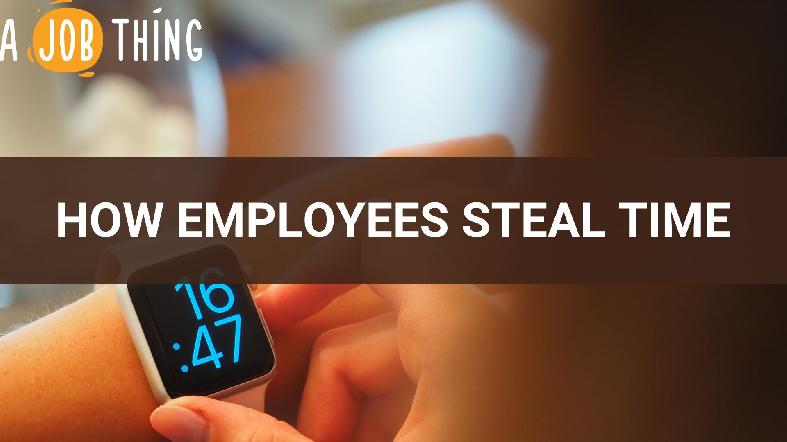
Employee Time Theft: How Your Employees Steal Time at Work
Create Job Description Using AI
Write appealing job descriptions for any job opening to attract the most qualifield and suitable candidates. FOR FREE.
try now
What is Time Theft?
Time theft happens when a worker is paid for work they have not actually done, or for the time they were not actually at work. With today's working style and easy access to the internet, time theft has become a major problem for employers today.
What you should know is time theft is not confined to just one kind of person, job title or industry. There are time thieves everywhere and they are finding new ways to avoid work.
Here are seven ways that employees commit time theft:
1. Manipulating the timesheets
It's not rare for workers to round down their time when completing paper timesheets, especially when no one's watching. This is what happens when paper timesheets are used to keep track of employees’ working hours.
Some workers are finding ways to manipulate electronic timekeeping systems, such as waiting to punch out until the next quarter-hour.
2. Buddy punching
It's a tale as old as time. If you still don't know what that is, buddy punching is where one coworker punches in for another, even those with time clocks. It's very easy as one employee can just hand their swipe card to a friend so they can punch on the employee's behalf.
This is extremely easy if employers use paper timesheets to track time since one employee can easily sign in for a friend. But this problem can easily be solved with an attendance system that is activated with fingerprints.
3. Lunch breaks that go a little too long
This is a very popular thing among workers in Malaysia. A 30-minute lunch break can easily turn into a 45-minute lunch break, particularly when employees are not needed to clock for their lunch breaks.
Another variation of this is smoke breaks. Smoke breaks cost employers a lot of money due to lost productivity.

Always keep an eye on employees with a bad attendance record.
4. Too much playing around
While humans do have a need to socialise, oftentimes we get a little too enthusiastic about it to the point we forgot about time. Some of the time lost is caused by:
- Employees sleeping on the job.
- Employees making personal phone calls that go on for too long.
- Employees taking excessive or unauthorised breaks.
- Employees taking too much time socialising or chatting a.k.a water cooler chat.
5. The internet
Some companies created a mobile phone policy just so they can handle employees internet usage. A lot of employees spend too much time on the internet with:
- Checking their social media account
- Watching Youtube
- Shopping online (especially during payday)
- Playing games online
- Working on another business on company time
- Checking personal email
From Twitter to LinkedIn, Instagram to Pinterest, social media is a big employee distractor and a popular type of time theft.
6. Swipe card antics
Time clock swipe cards should be a time-tracking tool. What's ironic is when employees use their swipe cards as a tool for not being tracked.
If your workplace uses time clocks with swipe cards, your managers probably heard a lot of excuses such as:
-
“I forgot my swipe card.”
-
“I lost my swipe card.”
-
“The time clock refused to take my swipe card.”
-
“A coworker lost their time card, so I lent them mine.”
7. Playing hide and seek
When your workers are on the move, such as drivers and employees that need to go on-site, it's not easy to track where they're going. They could stop at McDonald's for a few minutes, go home for a bit or not even show up to work at all.
If there's no check and balance in place, your employees can easily disappear off the radar. Usually, employers don't notice until client complaints, or it becomes too clear that the work is not getting done.
If you are looking for a smarter solution for an attendance system, you can check this article out. There also this article on how to deal with employees who are always absent.
If your employee is faking MC or abusing sick leaves, here's a solution.
Source: startupanz
Arm your organisation with the best employees. How? By hiring with us. Register at AJobThing.com to schedule your free consultation.





